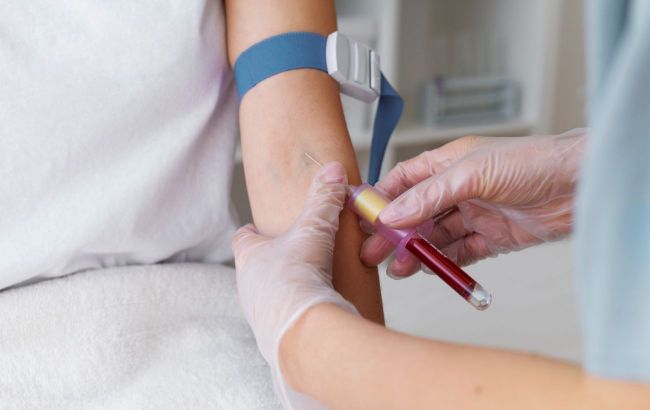Can smokers and people with tattoos donate blood: 6 popular myths
 6 myths that blood donors should not believe (Photo: Freepik)
6 myths that blood donors should not believe (Photo: Freepik)
Blood donation is essential help, but some people are indeed contraindicated from donating blood. Moreover, many myths have arisen around this. here is the information about the age at which you can become a donor and which myths should not be believed.
"Blood donation is dangerous"
Many people think they can contract HIV and AIDS.
During donation, only sterile needles and hemacons (containers for blood) are used.
These are always single-use instruments, which are opened exclusively in the donor's presence and are disposed of according to all standards after the procedure.
"It's scary, painful, and takes a long time"
The awareness of helping others actually boosts mood and improves emotional state.
The most unpleasant part of donation is the needle prick at the beginning of the procedure.
Blood donation takes no more than 10 minutes.
"Only certain blood types are needed"
All blood types are always needed. The more common a blood type, the more it is needed because more people require your blood type.
"I smoke and have an unhealthy diet, so I can't be a donor"
This is a misconception.
Doctors say that you need to follow certain dietary restrictions for three days, and then you can donate blood.
You need to refrain from smoking only on the day of donation (both before and for at least three days after).
"Blood should only be donated when something happens"
In fact, the best strategy is regular donation, so there is already a blood supply in case of an emergency. Moreover, no one knows when blood supplies might be needed.
Cancer patients, difficult childbirths, injured soldiers, or civilians all need donated blood.
One donor can save three lives.
"If you have a tattoo, you can't be a donor"
You need to know that the risks associated with tattoos are only if you were infected with HIV, hepatitis, or other viruses when getting the tattoo.
You can return to donation six months after getting a tattoo, or after four months if you have a negative NAT test for hepatitis C.
Moreover, before taking blood, they will check for HIV/AIDS infections and Kell.
At what age can you become a donor
Any competent citizen of Ukraine aged 18 and older who has undergone a medical examination and has no contraindications can be a donor.
Blood and/or its components can only be taken from a donor if it will not harm the donor's health.
After donating blood:
- rest for 10-15 minutes
- if you feel dizzy or weak, inform the staff
- do not try to walk or drive immediately if you feel dizzy
- avoid lifting anything heavy with the arm from which blood was taken for 2-3 hours
- do not remove the bandage or let it get wet for 3-4 hours to prevent bruising
- avoid intense physical activities for the next 12 hours
- eat a full and regular diet for the next two days
- drink increased amounts of fluids (at least 2 liters per day) for the next two days - juices, water, weak tea (alcohol is not recommended)
Sources: Instagram page of the medical community Svij.doc, DonorUA website, and the Public Health Center
This material is for informational purposes only and should not be used for medical diagnosis or self-treatment. Our goal is to provide readers with accurate information about symptoms, causes, and methods of detecting diseases. RBС-Ukraine is not responsible for any diagnoses that readers may make based on materials from the resource. We do not recommend self-treatment and advise consulting a doctor in case of any health concerns.

